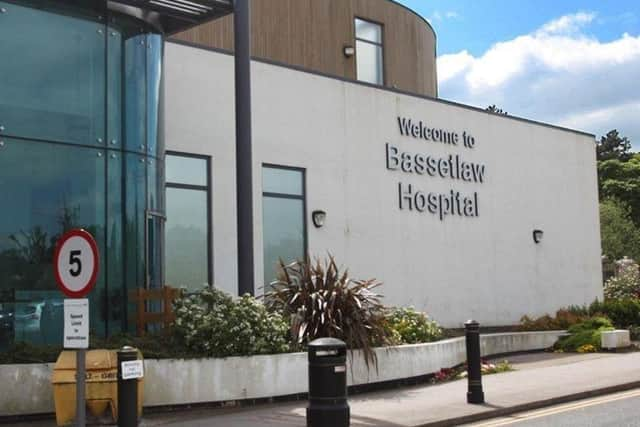Hundreds of people waited more than a year to be admitted at Doncaster and Bassetlaw Teaching Hospitals Trust
and live on Freeview channel 276
Charities have called on the NHS to do more to support patients awaiting treatment as health services work "flat out" to reduce waiting lists made lengthier by the impact of the coronavirus pandemic.
NHS Digital statistics show around 375 patients needing non-emergency care at Doncaster and Bassetlaw Teaching Hospitals NHS Foundation Trust had waited more than a year to be checked into hospital in the year to March following the initial decision to admit them.
Of those, 20 waited more than 18 months.
Advertisement
Hide AdAdvertisement
Hide Ad

Chief operating officer at Doncaster and Bassetlaw Teaching HospitalsRebecca Joyce said: “Throughout the past 18 months, as a result of the pandemic, we have had to prioritise our workload, to ensure the most urgent patients get treated first.
"Unfortunately this has meant some people have waited longer than is usual – for which we can only apologise.
“Staff are working tirelessly to catch-up, with extra clinical sessions organised on weekends as well as an emphasis on partnership work across the region to make the very most of NHS and social care capacity.
"We are also taking this opportunity to innovate, adopting drive-thru services for phlebotomy and cardio respiratory and exploring other enhancements and efficiencies in the way we work, and are part of NHS England’s ‘Accelerator Programme’ which will support us further in driving down our backlog.”
Advertisement
Hide AdAdvertisement
Hide AdNationally, more than 95,000 patients admitted for non-urgent treatment across England in 2020-21 had been waiting for more than a year, up from around 42,000 the year before.
The figures do not include planned admissions where there is a personal or medical reason behind a delay.
The Patients Association charity said patients should be given "honest timescales" for treatment and advice, support and compassion during their time on waiting lists.
Chief executive Rachel Power said: "The NHS must understand the impact on patients when planned care is cancelled or when you've no clear idea of when you may get care, and act in response.
Advertisement
Hide AdAdvertisement
Hide Ad"This means clear communication to patients and giving clear expectations about what might happen next.”
Sir Robert Francis, chairman of Healthwatch England said patients needed clear and individualised information about the next steps in their treatment.
He said an emphasis on interim care like physiotherapy, pain relief and mental health support could make the waiting experience more bearable and prepare people for surgery.
Sir Francis added: “With healthcare services forced to prioritise critically ill patients throughout the pandemic, it is a reality that people will be waiting longer for hospital treatment for a while.
Advertisement
Hide AdAdvertisement
Hide Ad“However, NHS England must manage waiting lists better by reducing the risks and inconvenience to patients caused by delays to care, to reduce the backlog."
A spokeswoman for the NHS said caring for 450,000 Covid-19 patients in hospital had had an inevitable impact on the health service's ability to deliver care for less urgent conditions.
She said patients awaiting treatment had been reviewed by clinicians and were supported while on the waiting list, adding: "NHS services have continued to be available for patients who needed them and staff are currently working flat out to get services back to pre-Covid levels.”
